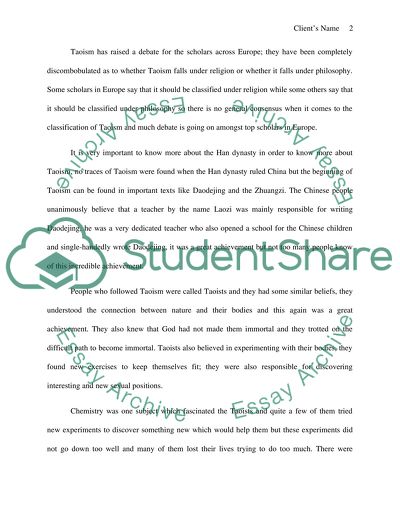Cite this document
(“Taoism, The Principle of Wu-Wei Research Paper Example | Topics and Well Written Essays - 2000 words”, n.d.)
Retrieved from https://studentshare.org/philosophy/1436302-taoism-the-principle-of-wu-wei
Retrieved from https://studentshare.org/philosophy/1436302-taoism-the-principle-of-wu-wei
(Taoism, The Principle of Wu-Wei Research Paper Example | Topics and Well Written Essays - 2000 Words)
https://studentshare.org/philosophy/1436302-taoism-the-principle-of-wu-wei.
https://studentshare.org/philosophy/1436302-taoism-the-principle-of-wu-wei.
“Taoism, The Principle of Wu-Wei Research Paper Example | Topics and Well Written Essays - 2000 Words”, n.d. https://studentshare.org/philosophy/1436302-taoism-the-principle-of-wu-wei.


